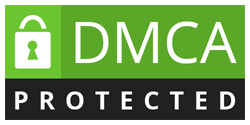Discuss a scenario (your experience if possible) when an attempt to control health problems was implemented. Be sure to focus on the health of a community, rather than the individual patients.
Surveillance and Rapid Needs Assessment During Disasters
According to the Centers for Disease Control and Prevention (2012), “…it is important to conduct surveillance to determine the extent and scope of the health effects on the affected populations…Public health surveillance during a disaster allows for the detection of potential disease outbreaks and track disease and injury trends.” In public health emergencies, decisions need to be made in a very short period, which is very different than a standard epidemiological investigation.
Please answer the following:
- Discuss a scenario (your experience if possible) when an attempt to control health problems was implemented. Be sure to focus on the health of a community, rather than the individual patients.
- How are rapid needs assessments used during disasters and emergencies?
ALL FORUMS
Initial Response: Initial responses should be no less than 200 words in length not including your reference(s) and supported by at least two references (aside from the textbook). Initial responses are due no later than 11:55 p.m. ET on Wednesday, Day 3 of each week. This allows time for other students to respond to your initial response. Please be aware that just “cutting and pasting” sections of articles (in lieu of writing an original initial post) is not acceptable and will negatively impact your grade.
Peer Responses: Students are required to respond to at least two (2) other student’s initial postings (and the instructor) with significant comments that have substance. Peer responses are due no later than 11:55 p.m. ET on Sunday, Day 7 of each week. All peer responses must be substantial and significant and should be no less than 100 words in length not including your reference(s) and supported by at least one reference (aside from the textbook). If possible, one of the responses to another’s work should be from an opposing viewpoint. Your response to your peers work should be engaging and informative with good substance (just stating “I agree…” is not acceptable). Your responses should contribute in a meaningful way to helping advance our knowledge of the topics the class explores. Your responses to another’s work should be posted as a sub-thread to the student’s original posting of whom you are commenting.
For all Forum activity, students are encouraged to use the APUS Online Library to search for references that help support their argument (in addition to textbook material). All posts should contribute and advance the class knowledge of the course themes. The Forum provides an opportunity for everyone to analyze work from many different perspectives.




